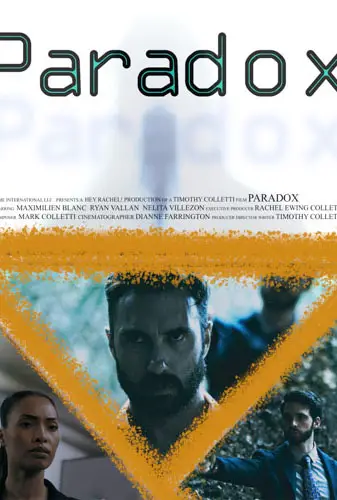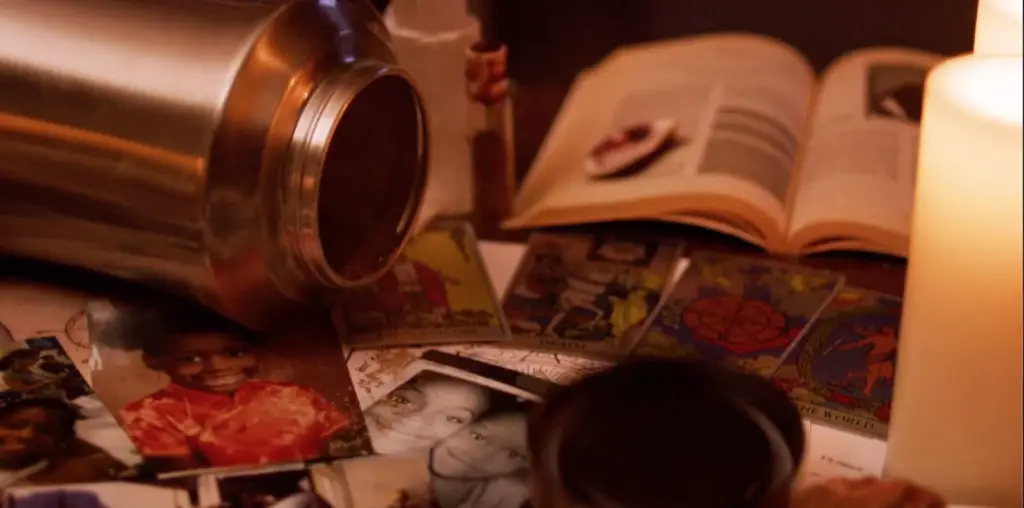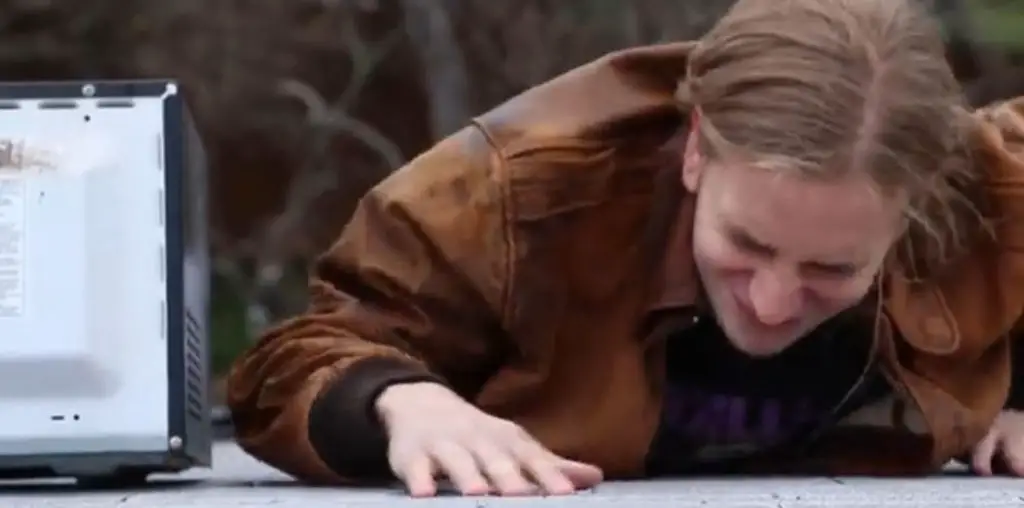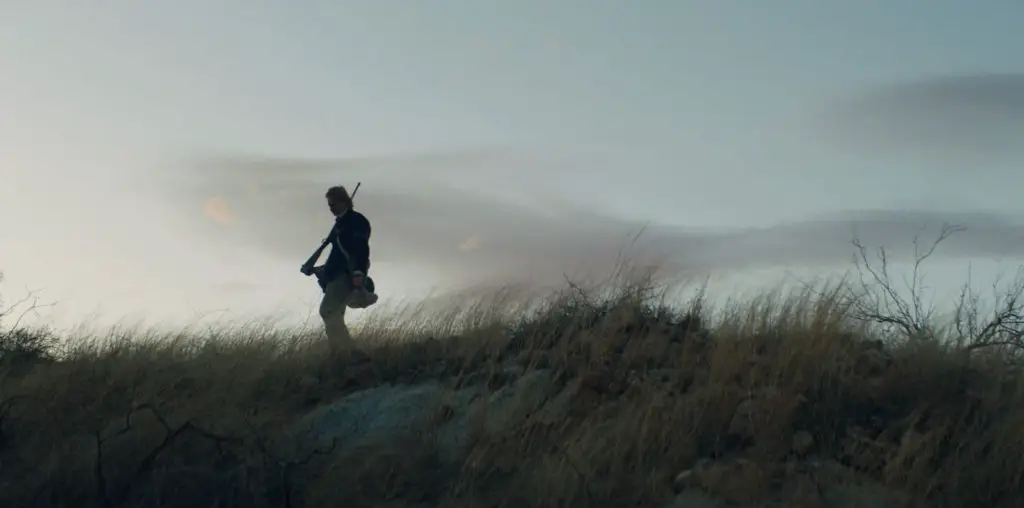
Timothy Colletti’s Paradox is an indie film that morphs from a serial killer procedural to a story about time travel contradictions and anomalies. A drifter named Zane Carson (Ryan Vallan) is brought in for questioning about the murders of two children in a small town. The detectives on the case, Ben Gillard (Maximilien Blanc) and Tempus Johnstone (Nelita Villezon) hear a story from Carson that is replete with (unverifiable) assertions about the future. He claims he’s been sent back in time (a la The Terminator) to destroy the family line that will bring about the destruction of the world in a nuclear war.
Gillard begins to be swayed by Carson, but Johnstone argues that the fact that the timeline appears to be unchanged means Carson is either a murderous psychopath with a penchant for creative storytelling or a time soldier whose mission failed. The latter is subject to the laws of our time and should be prosecuted and punished under our rules. Gillard’s being open to Carson’s story results in him being questioned in the investigation.
Paradox is a film about ideas and emotions with very little action. The ideas are compelling, and the performances, while limited, are solid. The stunning Villezon is breaking into acting, coming from being a martial artist and social media influencer. She has an incredible screen presence and should go on to more film roles.
Filmically, there’s not much going on. The movie is mostly interviews shot sitting at a table. Carson’s time travel interview runs almost 30 minutes without many cuts. This is like Kevin Spacey’s Verbal Kint character in The Usual Suspects. However, Kint’s spiel cuts to action flashbacks. Carson just drones on.

“…sent back in time to destroy the family line who will bring about the destruction of the world…”
Colletti directed and wrote the film. He breaks basic rules of film-making. The first tenet of a script is to “show, don’t tell.” Most of this film is expository dialogue, and that does drag on. Paradox could use an aggressive edit. Two hours of monotone, deliberate dialogue with the fixed camera cutting back and forth to the speaking character wears on the viewer. The ideas in the film are strong, and the tension does build to a resolution where we discover whether Zane is telling the truth or whether he’s spinning yarns to delay and confuse the investigation. The script also pulls attention away from missing/murdered children to temporal warfare on a global scale. That’s a big jump in focus.
There’s been quite a bit of film narrative devoted to time travel theory in the last few years, from the Marvel Endgame time manipulation to the Time Variance Authority invoked in the Loki TV series. The working time model in those stories posits that changes to a timeline result in new branches of the universe being created, where every decision that can be taken is reflected in a distinct timeline. Colletti follows a different and fascinating theory here. In his model of time travel, there is only one timeline, and it can be changed, which means you can nullify your own existence by changing the past such that you were never born (like Back to the Future). In which case, since you were never born, you are not missed. There are paradoxes in this idea, but it’s thought-provoking. What happened to the previous timeline where you did exist? Does it simply never have happened?
All in all, Paradox works as an interesting thought experiment if you can stay focused.

"…morphs from a serial killer procedural to a story about time travel..."


